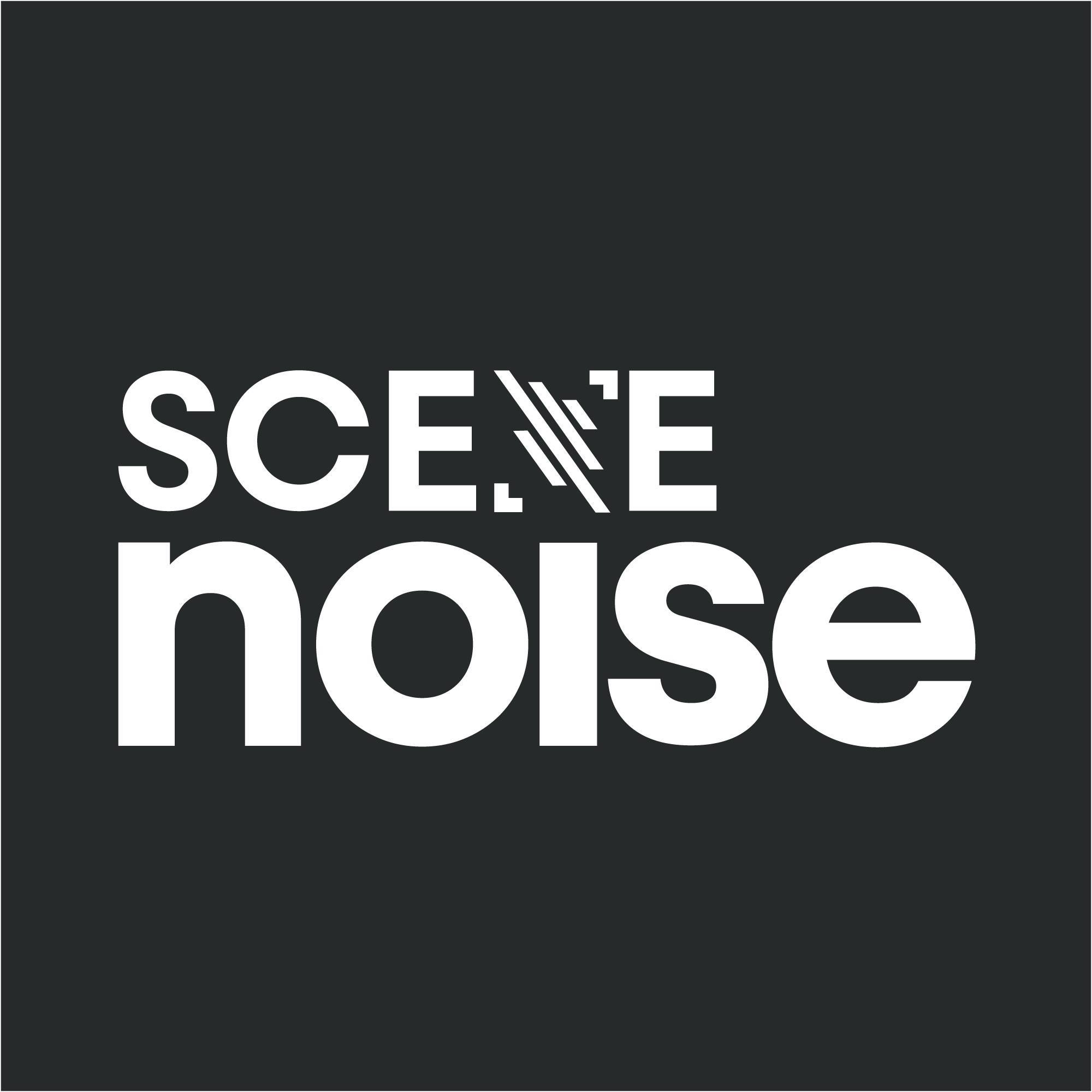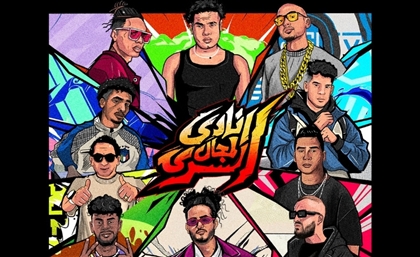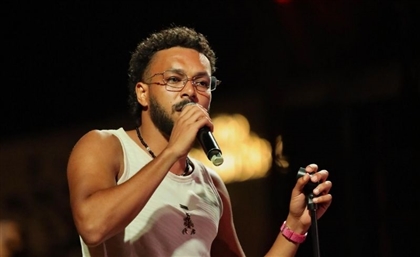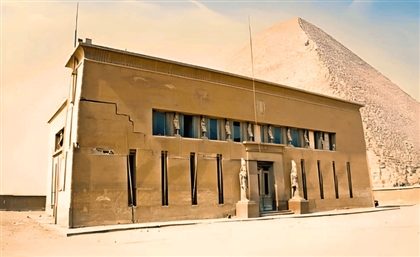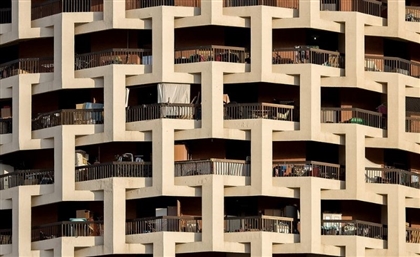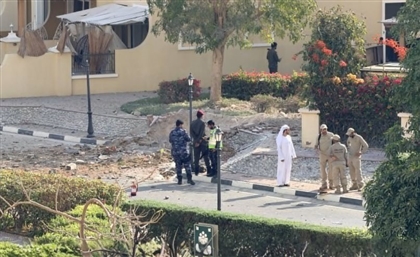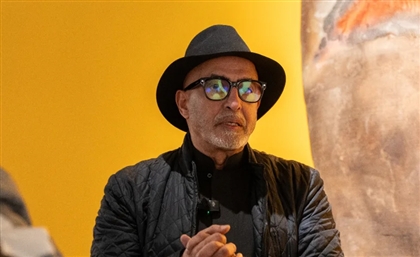Nawafiz: The Dutch Festival Highlighting the Sounds of SWANA
The event programmer behind Utrecht’s first all-Arab festival tells us all about the growing demand for MENA music abroad.
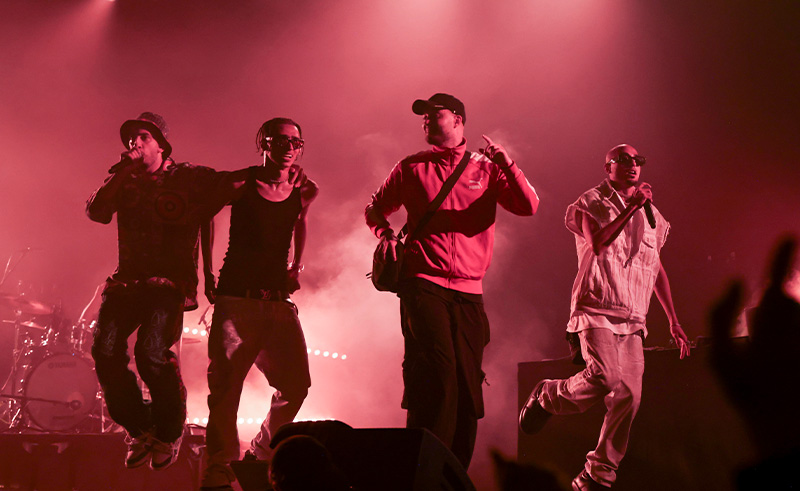
Photography by Roger Anis/SceneNoise
Over the past few years, MENA artists have started gaining global attention, connecting with both Arabic audiences in the diaspora and international listeners alike. At this point, it is clear that the regional music scene is growing into a cross-continental movement, which has sparked a demand for live performances in countries around the world.
-7b5d2f43-9fce-4d48-baf1-042ef90b0a50.jpg)
In the past two years alone, we’ve seen regional acts such as Elyanna and Saint Levant performing at the world-famous American music festival Coachella, a monumental accomplishment for any artist regardless of their nationality, while Egyptian rapper Wegz embarked on his first ever world tour. Artists such as Marwan Pablo, Shabjdeed and Abyusif have all made their European debuts in the meanwhile.
-6b82f366-843a-403c-add7-3bebb96a2886.jpg)
Through this demand for performances by regional artists has undoubtedly grown, there is still a lack of organizations and venues that dedicate their programming to hosting these artists, with some exceptions such as Marsm in the UK which has been pioneering this movement, and international players such as Live Nation which have been showing more of an interest in the MENA region’s music scene.
Aiming to fill this gap in the industry, and to afford regional artists more opportunities to perform abroad, TivoliVredenburg, a state-of-the-art venue located in the city of Utrecht, the Netherlands, has taken the initiative to launch their first ever all-Arabic festival, Nawafiz.
-327a4246-0c76-4c98-8ca6-a807cbc3d7a4.jpg)
Over a decade after it opened its doors, TivoliVredenburg has become a staple of Utrecht’s music culture and nightlife, boasting a versatile array of concert halls within the venue, each specifically designed with a different intention to accommodate shows from all genres of music. For the first edition of Nawafiz, the venue opened the doors of its intimate concert hall, Ronda, to showcase the region’s breadth of diverse sounds and genres.
-af9ff3de-ba9d-457a-a431-501272dc910c.jpg)
Pulling out all the stops for its first edition, the festival covered an impressive variety of modern Arabic music, ranging from Shkoon’s blend of Mawwal-inspired vocals and rich electronic instrumentals, to Marwan Moussa’s signature take on Egyptian hip-hop, El Sawareekh’s explosive mahraganat hits, the feminist Maghrebi electronic stylings of Aïta Mon Amour, Kazdoura’s take on Arabic soul music, nostalgia-packed selections of the biggest hits of the 90s and 00s by Disco Arabesquo, and traditional levantine dabke selections from Dabke Night.
-16b7025f-cdf1-4c80-b3fc-83987c872721.jpg)
Ahead of the festival, we spoke with Loubna El Boujoufi, programmer for Nawafiz festival, to glean more insight into the initiative behind TivoliVredenburg’s all-SWANA event:
Q: How did the idea for the festival come to be?
A: The festival was kind of a natural next step for us, looking at the current interest in music from the SWANA region. We've seen a big growth in ticket sales for concerts by SWANA artists, and an increase in visitors with roots in the region who are now familiar with our venue after visiting for other concerts. It felt the right time to create something new to highlight and celebrate the rich and diverse Arabic musical culture.
Q: Is the first all-SWANA festival at TivoliVredenburg?
A: Yes, this is the first edition, and we presume many more to come.
Q: What led to the decision of having acts from different genres performing at the festival?
A: We have been working in collaboration with various bookers and artists from all over the region to offer our audience a wide range of musical genres. For us it's important not only to highlight one specific genre but to give the stage to new and upcoming artists who seamlessly mix cultures, genres and sounds to create something that fits their artistic view. This is the sound of a new generation so we feel we should tap into that artistic point of view and not narrow that down to one or two specific styles of music.
Q: How is SWANA music received in the Netherlands?
A: We've seen such an interest from a relatively new audience. I think that currently Arabic music is becoming more 'mainstream' with for instance artists like Elyanna and Saint Levant on stage at Coachella. Arabic music is finally getting the recognition it should have been getting years ago!
Q: Where did the name Nawafiz come from?
A: We had been brainstorming with a few people from the community, and we all agreed that this would fit the diverse programme that we want to show at the festival.
Q: What does the festival aim to achieve for SWANA artists performing in the Netherlands?
A: Definitely more space and attention for artists from the SWANA region. There is so much more to discover and what should be seen and deserves the stage. This is only the beginning!
- Previous Article Italian-Palestinian Duo No Input Debuts Eponymous Electro EP
- Next Article Travel Across History on Egypt's Most Iconic Bridges







